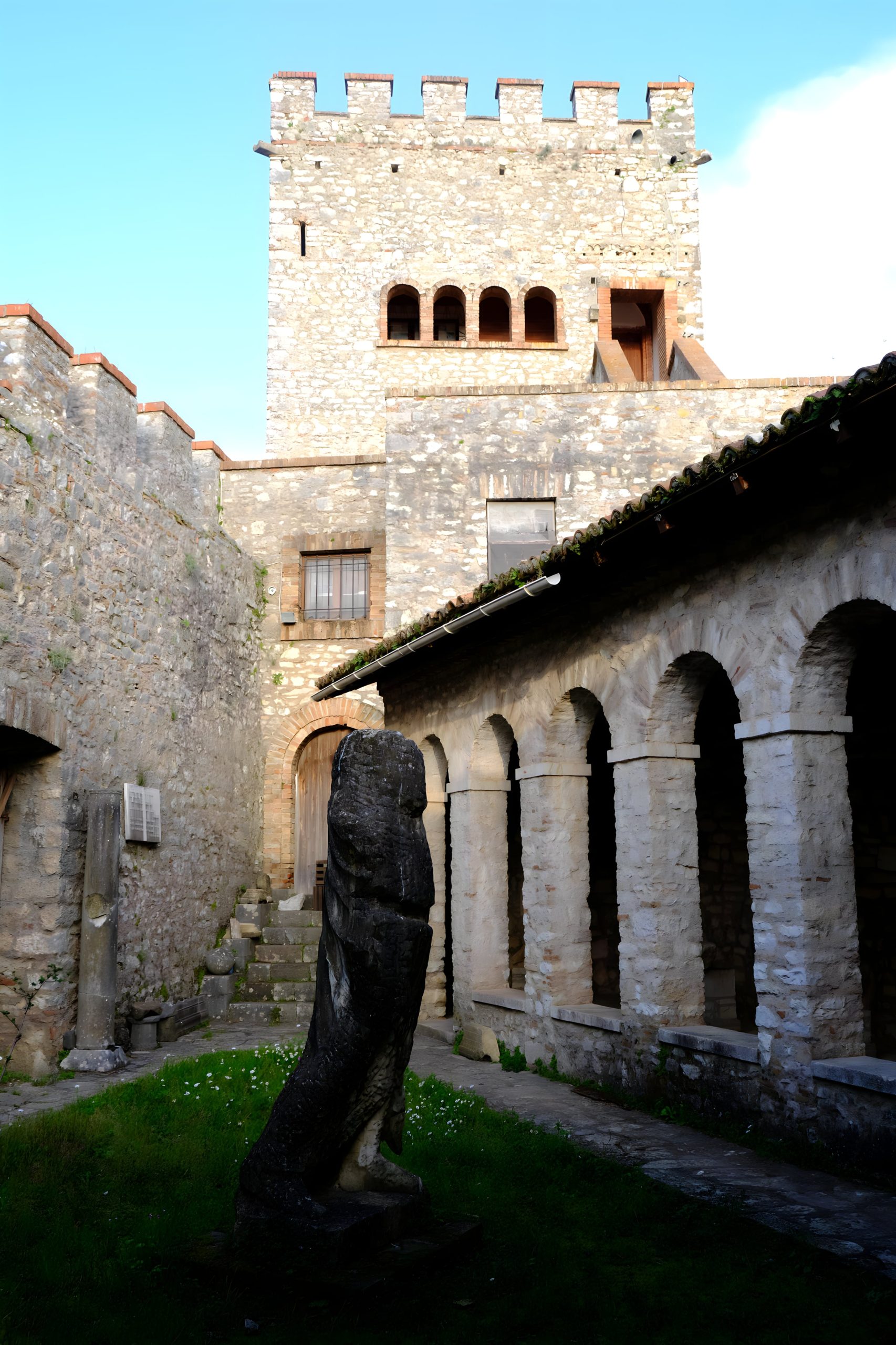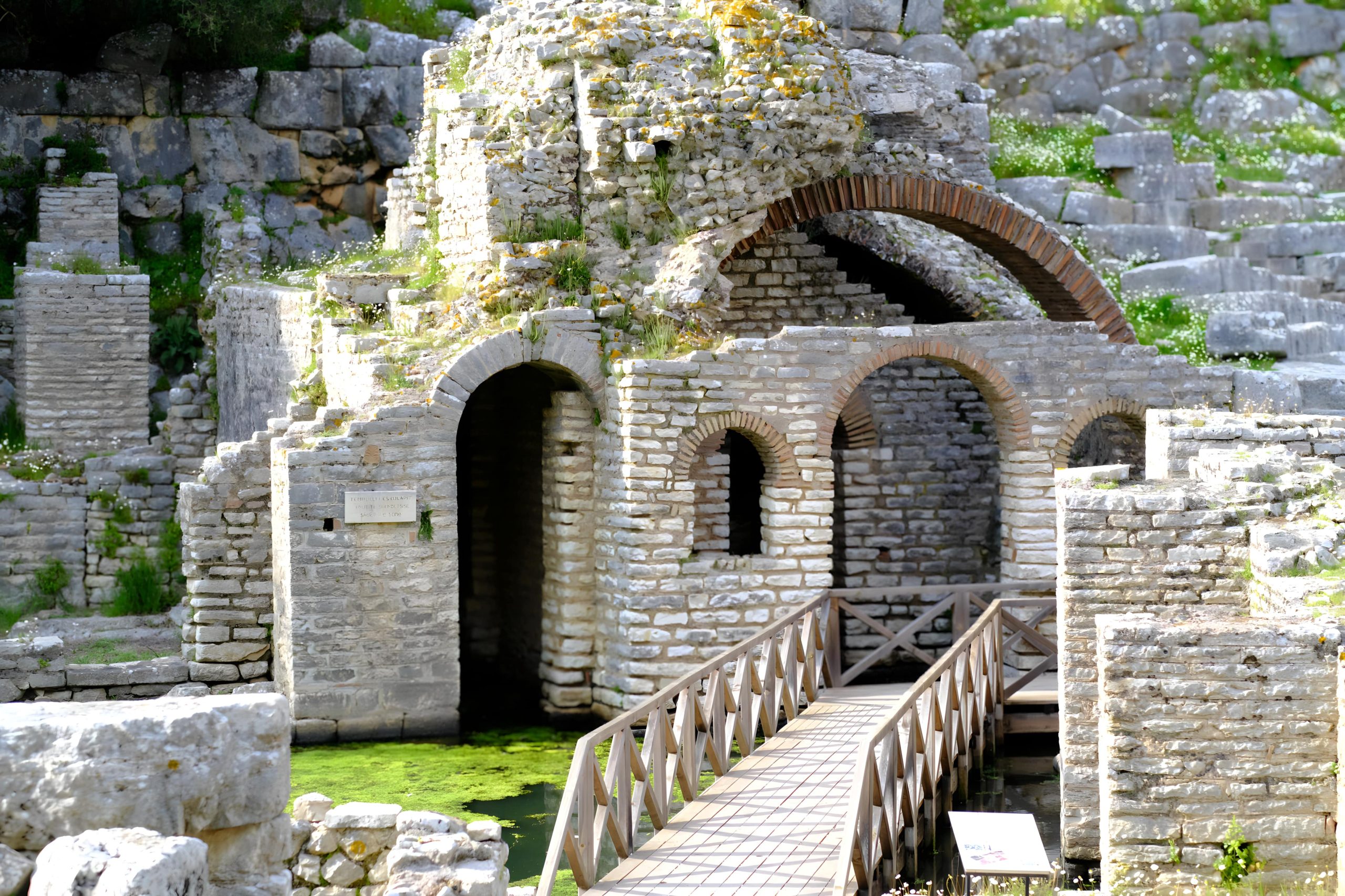Basilica
Basilica
The archaeological remains of the Basilica-Synagogue are located within the Antique Castle walls of Onhezmi, along a main street in Saranda. Urbanization processes have complicated direct study of these monuments, a common issue in areas where modern cities overlap with ancient sites.
Significant remains of a synagogue complex from the 5th and 6th centuries CE in the city center were unearthed through archaeological excavations conducted in 2003. The early Christian basilica, excavated across several archaeological seasons about fifteen years ago by Kosta Lako, represents the final phase of the conversion of this Jewish worship complex into a Christian place of worship. Over time, the synagogue complex, both within and adjacent to the surrounding wall, underwent multiple transformations, ultimately being converted into a church.
Archaeologists focused primarily on mosaic floors—one featuring a seven-branched menorah, another partly covering the basilica’s aisles (or “nefs”). The menorah was part of a decorative “carpet” adorned with geometric and floral motifs and included symbols like the etrog (citron) and the shofar (ram’s horn), both essential symbols in Jewish culture, traditionally used during religious festivals.
Based on excavation findings and mosaic analysis, the complex appears to have been in use for 100 to 200 years, beginning with the menorah room used for prayer, progressing through the basilica’s construction, and ultimately its conversion to a church. The complex was likely destroyed by a severe fire, possibly linked to Slavic invasions in the late 6th century. Regular excavations continue to further uncover and understand this unique complex, which provides valuable insights into ancient Saranda’s layout and organization, with the current findings indicating rare archaeological significance.
Visitors can explore the remains of the Basilica-Synagogue, including key architectural elements. However, the mosaics are not always accessible to the public.
The Basilica-Synagogue complex in Saranda was excavated through a collaboration between the Albanian Institute of Archaeology, the Institute of Archaeology at the Hebrew University of Jerusalem, and the Institute of Cultural Monuments (Tirana), with funding from the Hebrew University of Jerusalem.

LOCATION
In the area of the Ksamil peninsula
established
In the XVIII century
SURFACE
It has a length of 10m and a height of 3.5m.
Basilica - Synagogue
Basilica - Synagogue











